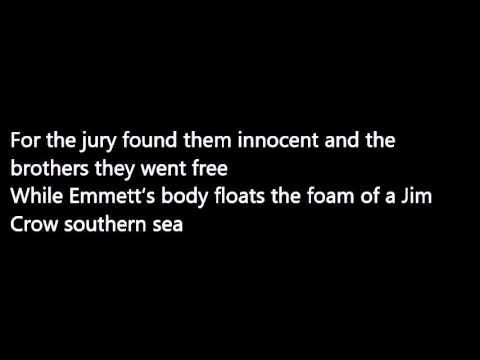Thank you for joining me for today’s song, “Strange Fruit” by Abel Meeropol. If you’d like to hear the song before you read about it, I’ve included two YouTube videos below the article.
✳️ Note: The level of this article is for students with a TOEIC of 550+, Eiken Pre-1, CEFR B2. For Japanese students, vocabulary words in bold are provided in Japanese below.
Today, we are focusing on a very important song in American culture and history. The article below was summarized and adapted from an article by Lois Tuttle on her Substack, Campfire Stories of Resistance & Resilience. Below the article, you can read a short interview that Ms. Tuttle has graciously agreed to.
The Background and Song
(629 words)
Abel Meeropol was a teacher, songwriter, and writer who lived in the Bronx, New York. His parents were Jewish immigrants who escaped from Russian violence. Abel learned to stand against injustice and discrimination. He taught English at his old high school, where one of his students was the famous writer James Baldwin. Abel and his wife Anne, also a teacher, faced sadness when they lost two babies. To honor them, Abel wrote under the name “Lewis Allan.” Later, they adopted two boys, Robert and Michael Rosenberg.*
Abel’s life changed when he saw a photo of two Black teens, Thomas Shipp and Abram Smith, who had been lynched by a white mob. Horrified, Abel wrote a poem called Bitter Fruit and later wrote the music to create the song Strange Fruit. The song described the horrible reality of lynching and racism. In 1939, Billie Holiday performed it, even though people told her it wasn’t safe to do so. It became a powerful symbol of resistance, even though radio stations avoided playing it.
During the 1950s, Strange Fruit was less heard due to political fears, but its message lived on. Lynching had killed thousands of people. Activists used the song to push for anti-lynching laws. Success came much later with the 2020 Emmett Till Antilynching Act (law).
Many artists, including the American singer-songwriter and activist Nina Simone, later performed Strange Fruit. By Abel’s death in 1986, the song was famous again. Time magazine named it the “song of the century,” and the Library of Congress honored it. Today, Strange Fruit continues to remind people of America’s history of racial violence and the fight for justice.
The Song
The song begins by giving the listener a view of a poplar tree. A poplar (not popular) is a kind of tree that is found all over the U.S., but which grows best in the southern states. The songwriter uses metaphor to link strange fruit to the black bodies swinging from the trees.
Southern trees bear a strange fruit
Blood on the leaves and blood at the root
Black bodies swinging in the Southern breeze
Strange fruit hanging from the poplar trees

A pastoral scene is one in which we imagine meadows covered with soft grass, gentle cows eating, a small stream, the sweet smell of certain flowers, like magnolias, and many trees giving shade to rest under. The gallant south reminds us of the way many people in the southern states thought during the civil war, that the states were fighting a glorious battle to save their way of life which included enslaving millions of people. Here, “gallant” is used ironically.
Pastoral scene of the gallant south
The bulging eyes and the twisted mouth
Scent of magnolias, sweet and fresh
Then the sudden smell of burning flesh
Here is a fruit for the crows to pluck
For the rain to gather, for the wind to suck
For the sun to rot, for the tree to drop
Here is a strange and bitter crop
The song Strange Fruit is as powerful today as it was in the 1930s when Abel Meeropol wrote it. It speaks out against racism, injustice, and violence. While these problems still exist, so does the strength to fight them. The song is a civil rights anthem that reminds people of America’s painful history of brutality against Black people. It honors the courage of those who fought for freedom and justice, and makes sure that fight is never forgotten. Strange Fruit continues to inspire those who stand up for truth and equality.
* The boys’ parents, Julius and Ethel Rosenberg, had been arrested on suspicion of passing nuclear weapons secrets to the Russians. The Rosenbergs were executed, although more recently discovered evidence shows that Ethel had nothing to do with the case.
The interview
(485 words)
Louise: Tell us a little about your background. Why did you start your Substack?
Lois: After the 2024 U.S. election results were announced, I was very frightened. I thought about the things President-elect Trump had said, done, and promised to do that could hurt civil rights and protections, and how our elections and government work. But then, I thought of the stories I knew of people who have fought to protect the lives and rights of others, even in very hard times. So, I started my blog, Campfire Stories of Resistance & Resilience, to share these stories. The blog is about people who never gave up, fought for what’s right, and did amazing things to help others, their communities, and democracy.
Louise: For you, why is this particular song important? What can we learn from this song?
Lois: It's a song that talks about the awful history of racism, unfair treatment, and violence in America. It shows how people’s fear, hate, and prejudices have caused atrocities to happen. Too many times, people have done horrible things to others due to fear and extreme and negative feelings about other people whom they consider “foreign” or “different” from themselves. The song also reminds us that we have a very strong moral obligation to stand up against racism, stop unfair treatment, and make the world a kinder place.
Louise: What other songs about social issues are important to you? Why?
Lois: Two are songs that Nina Simone wrote and sang. She was one of the artists who sang Strange Fruit. One is called Ain't Got No…I got Life. This song makes me think about the things that no one can ever take away from any person. Another Nina Simone song I find important is called Mississippi Goddam. It is about terrible crimes of violence against Black people and civil rights activists in the 1960s. She was extremely upset because of those crimes and because people had told her to be patient during such awful times. I also think songs like Somewhere Over the Rainbow and The Rainbow Connection are also about social issues. They are important because they send a message that we need to keep imagining and working towards a world that’s better, more inspiring, and more nurturing to our lives and dreams.
Louise: What else would you like the readers of Social Issues in Song to know?
Lois: I think it’s wonderful that you and your readers are using these songs and stories to learn more about the English language and American history. I look forward to drawing inspiration from the stories, songs and history covered on your blog. I hope we can all use this knowledge to create a happier, more just, and more nurturing future for ourselves, our children, our communities, and our democracies.
Louise: Thank you, Lois, for your own words of encouragement for all of our readers! Best of luck to you.
Question
How does this song relate to other forms of protest or to protest music?
Vocabulary
graciously 優しく
injustice 不正
discrimination 差別
mob 暴徒
horrified 恐怖
racism 人種差別
resistance 抵抗
pastoral 田園
magnolia モクレン
gallant 勇敢
bulging 膨らむ
flesh 肉
pluck むしる
suck 吸う
rot 腐る
anthem 賛歌
brutality 残忍
executed 処刑される
frightened 怯える
resilience 回復力
prejudice 偏見
atrocities 残虐行為
moral obligation 道徳的義務
inspire 刺激する
nurture 育てる、育成する
This version is by Nina Simone. The video shows graphic images. Please open it on YouTube.
Sources
A Cold War tragedy: The execution of the Rosenbergs. The Week (2021, July 9). https://theweek.com/arts-life/culture/history/953449/a-cold-war-tragedy-the-execution-of-the-rosenbergs. Accessed 29 December, 2024.
Democracy Now! (2025, January 8). Will Biden exonerate Ethel Rosenberg posthumously? https://www.democracynow.org/2025/1/8/ethel_rosenberg_posthumous_pardon . Accessed 29 Decmeber 2024.
Public Broadcasting Service. (2022, March 31). Strange fruit. PBS. https://www.pbs.org/independentlens/documentaries/strangefruit/ Accessed 29 December, 2024.
Tuttle, L. (2024, November 15). Story of the Life of a “Strangely” Un-Killable Resistance Song: ‘Strange Fruit.’ Accessed 29 December, 2024.
英検Pre-1級以上 | 名曲で英語を学ぶ









What a remarkable way to share history, language and social issues. Brava! One of my favorite poems and songs. So powerful.
I watched both versions of the song. I’ve been speechless since ... at a loss what to think, what to do and how to deal with my feelings of various kinds. This song is yet another “must” song for “Social Issues in Song,” isn’t it? The utmost respect to Billie Holiday for her brave decision to sing this song at the risk of her life back then.
Mitsuru Hiki